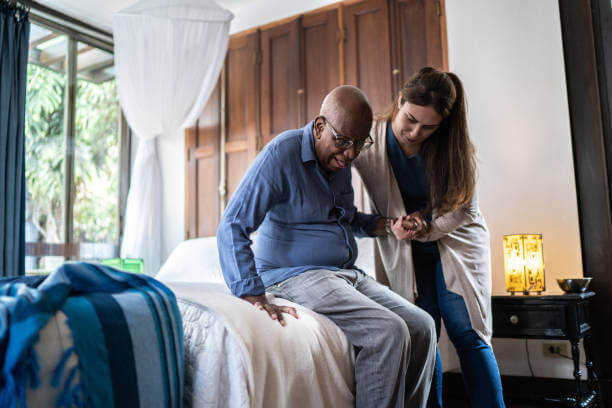What does a Nursing Home Ombudsman do? It’s a question we get a lot here at Caregiverlist.
Ombudsman comes from the Swedish word meaning, literally, representative. It’s the Long-Term Care Ombudsman’s responsibility to advocate for residents of nursing homes, assisted living facilities and other adult care facilities. They investigate citizen complaints, report findings, and suggest solutions. They are also advocates for on a legislative level to improve the quality of care for seniors.
Senior care costs, especially within institutional settings, are spiraling. With approximately 1.6 million Americans over the age of 65 living in institutions such as nursing homes, it is vital that residents and their families are getting the best service for the money they are paying. Long-Term Care Ombudsmen are at the front line, investigating nursing home violations and ensuring that quality care is provided.
The Ombudsman Program began in 1972 as a Public Health Service demonstration project in seven states, responding to the problems of nursing home residents and operated under the authorization of the Older Americans Act. The program was transferred to the Area on Aging in 1974 and in 1978, Congress amended the OAA to include a requirement that each state develop a Long-Term Care Ombudsman Program.
There are 53 state ombudsmen (50 states, plus the District of Columbia, Puerto Rico, and Guam). Each Office of the State Long-Term Care Ombudsman is headed by a director who oversees thousands of local ombudsman staff and volunteers. The services of the office are free and confidential. In 2011 (the most recent annual report to Congress), Ombudsmen nationwide completed resolution work on 204,044 complaints and resolved or partially resolved 73 percent of these complaints to the satisfaction of the resident or complainant.
Simply put, the Long-Term Care Ombudsman’s role is to preserve the Residents’ Rights Guarantee Quality of Life.
The 1987 Nursing Home Reform Law protects the following rights of nursing home residents:
- Right to Be Fully Informed of available services, facility rules, survey reports and the like, and in a language they understand.
- Right to Complain without fear of reprisal.
- Right to Participate in One’s Own Care including the right to be informed of their medical condition, participate in their care-planning, and also the right to refuse medication and treatment.
- Right to Privacy and Confidentiality regarding medical, personal, or financial affairs.
- Rights During Transfers and Discharges.
- Right to Dignity, Respect, and Freedom from mental and physical abuse, corporal punishment, involuntary seclusion, and physical and chemical restraint.
- Right to Visits by a resident’s personal physician, relatives, friends, and anyone of the resident’s choosing. A resident also has the right to refuse visitors.
- Right to Make Independent Choices both inside and outside the nursing home.
If you or a senior you know has need of a Long-Term Care or Nursing Home Ombudsman, you can find yours in Caregiverlist’s By-State information. They are there to resolve nursing home complaints, request better care and for feedback when choosing a nursing home.







